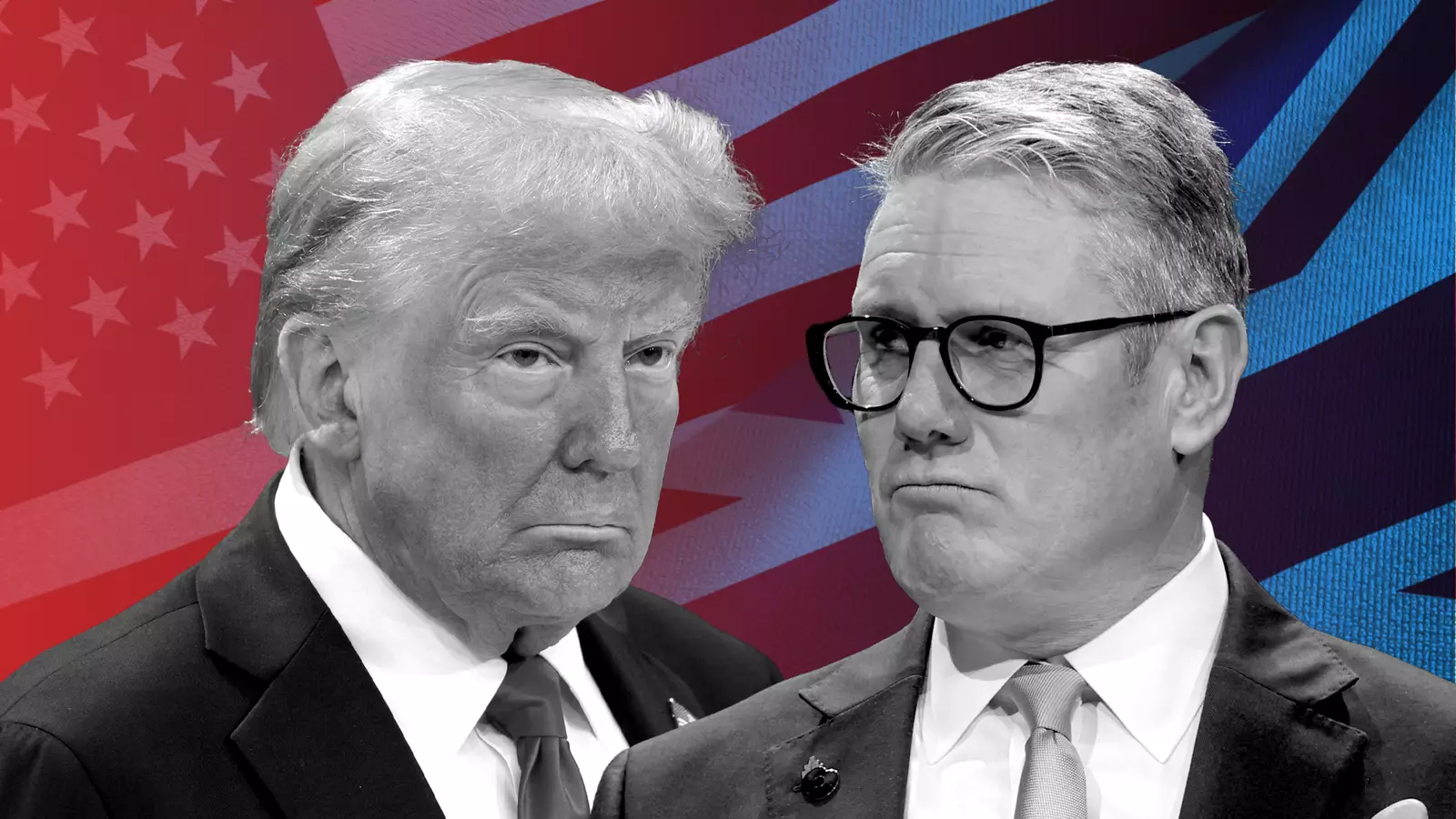In the shadow of the iconic Elizabeth Tower, Britain prepares for its annual Remembrance Day, marked this year by the 80th anniversary of the D-Day landings—an event deeply ingrained in the national consciousness. The commemoration, organized by figures like the Speaker of the House of Commons, Sir Lindsay Hoyle, involves projecting tribute images of valiant soldiers from the Normandy campaign. This solemn observance serves as a poignant reminder of sacrifices made during the two world wars and subsequent conflicts, yet it also raises uncomfortable questions about the present state of the nation’s military readiness.
While political leaders gather to lay wreaths at the Cenotaph, a melancholic irony permeates the air. It’s a paradox that these figures, often part of austerity measures impacting the UK’s defense capabilities, honor those who fought valiantly in the past. D-Day remains a defining narrative for British patriotic pride, yet the absence of Prime Minister Rishi Sunak from the international D-Day commemorations earlier this year underscored a troubling trend. His early departure from France was perceived as a slight, particularly when the historical significance of the event is viewed against the backdrop of modern geopolitical tensions.
The security landscape has dramatically shifted since the days when British and American forces landed on the beaches of Normandy. The United States has long provided a security umbrella over Europe, a relationship tested now by the re-emergence of global military threats. As political leaders pay homage to the fallen, there is a growing unease about the reliance on U.S. military might, especially as the doctrine of “America First” gains traction again, particularly with the prospective return of Donald Trump to power.
As tensions mount across various regions—from Ukraine’s battle against Russian aggression to rising concerns about China’s military ambitions—British politicians are confronted with serious questions regarding national defense. The recent House of Commons report entitled “Ready For War?” signifies a national introspection on the state of military preparedness. The contradictions inherent in political discussions surrounding defense spending underscore the gravity of the threat landscape.
General Sir Roly Walker, now leading the UK armed forces, faces an uphill battle in terms of both modernization and funding. With calls to increase the army’s “lethality” amid threats from adversaries like Russia, China, and North Korea, existing budget constraints present significant challenges. The question looms: Can the UK afford to bolster its defense capabilities, or will it continue to rely on historical alliances at the expense of its own military readiness?
The concept of NATO, framed as a collective security agreement, emphasizes that an attack on one member is an attack on all. However, the reality of U.S. commitment to NATO is uncertain. With only a fraction of European powers meeting the 2% GDP defense spending target, and calls for the UK to ramp up its contributions, the sustainability of this partnership is under scrutiny. If the United States reduces its presence in Europe, will the continent be prepared to face emerging threats independently?
Former defense secretary George Robertson suggests that the “deadly quartet” of adversaries—Russia, China, Iran, and North Korea—are not disparate threats, but rather potentially coordinated challenges that the UK must prepare against. The former army leader’s assertions about utilizing technology such as drones and artificial intelligence to enhance warfare capabilities reflect an acknowledgment that conventional forces alone may no longer suffice. Yet, without adequate funding, these innovations risk being merely theoretical.
The current climate of defense spending is confused and contradictory. Political sparring over budgets has revealed that for effective security, expenditures will likely need to exceed the current 2.5% target of GDP. Criticism of successive government spending decisions only exacerbates the situation. The harsh reality is that the UK faces a defense “black hole”—a gap of £17 billion in funding needed to sustain its armed forces, as articulated by the new defense secretary, John Healey.
As we reflect on our military commitments amid the solemn commemoration of our veterans, it becomes ever clearer that the sacrifices made in the past must be honored not only with words but also with adequate support for those who serve. The desire for heightened engagement on the global stage will require sacrifices, particularly as European nations navigate the dual pressures of domestic economic constraints and international security obligations.
As some European leaders begin to entertain concessions regarding Ukraine, possibly jeopardizing its sovereignty, the specter of appeasement looms large. This evokes troubling memories of the past. The parallels between present-day negotiations and the failures of the Munich Agreement serve as a cautionary tale: appeasing aggressors can lead to catastrophic consequences.
The gathering at the Cenotaph, where politicians honor those who have fallen, should ignite critical discussions about our military’s future. The lessons from the past are clear; the UK must not only commemorate but actively prepare for the challenges ahead. As we honor our collective history, the call for a robust, sustainable military presence remains more relevant than ever. The sacrifices of D-Day and beyond must inform our strategy, ensuring that future generations do not face the same uncertainties in defending our values and freedoms.


Leave a Reply